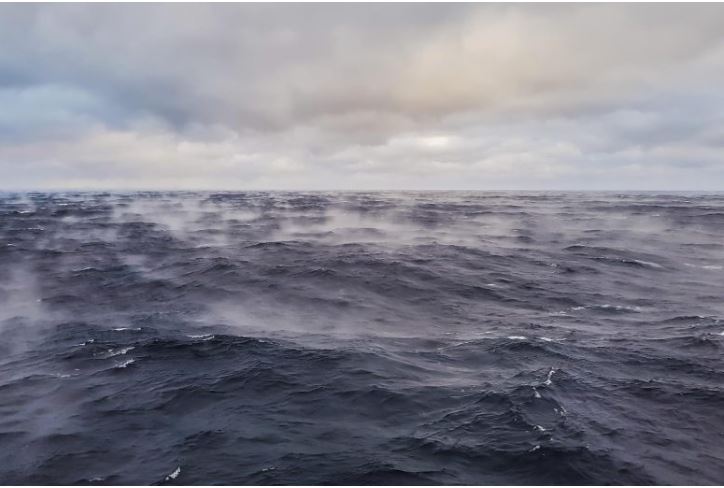


 10:48:10
10:48:10  2025-11-25
2025-11-25  1105
1105

New research from the University of St Andrews indicates that certain coastal regions are on track to experience far greater acidification than previously estimated. As atmospheric CO2 continues to rise, these areas are becoming acidic at an accelerated pace, creating a serious long-term risk for coastal communities and the economies that depend on them.
Atmospheric CO2 and ocean pH (acidity) are closely connected. When additional CO2 enters the air, the ocean absorbs much of it, which steadily lowers seawater pH and increases overall acidity.
A new paper released today (13th November) in Nature Communications reports that this process intensifies within ocean upwelling systems. Using the California Current as a representative example, the research team found that upwelling regions do not simply follow global acidification trends but actually amplify them.
Upwelling occurs when cold, nutrient rich and naturally acidic deep waters move upward along continental coastlines. Organic matter that sinks from the surface is broken down by microbes in the deep ocean, producing CO2 and further increasing the acidity of these waters. When this water rises during upwelling, it carries that high acidity back to the surface, where it interacts with atmospheric CO2 and becomes even more acidic.
Reconstructing the Past, Predicting the Future
To understand how acidity has shifted over time, the team examined historic coral samples and measured boron isotope signatures preserved in their skeletons. These records reveal how pH changed throughout the 20th century. The researchers then used a regional ocean model to project how acidity in the California Current is likely to evolve during the 21st century.
The results show that upwelling regions experience ocean acidification at rates that surpass the level “expected” from rising atmospheric CO2 alone. The deep waters that surface during upwelling begin with high acidity, and the continuing increase in human-produced CO2 intensifies this effect even further.
Upwelling systems are among the most productive systems on our planet and support much of the world’s fisheries. Understanding how they respond to rising CO2₂ is therefore not only critical for ocean science, but also carries major implications for fisheries and their potential vulnerabilities.
Co Author Dr. Hana Jurikova, Senior Research Fellow in from the School of Earth and Environmental Science, said: “Predicting how upwelling systems will respond to climate change is highly complex, as anthropogenic influences interact with natural sources of ocean acidification. Our research shows that such interactions can amplify environmental change in the California Current System, highlighting the need for similar studies in other regions to better anticipate future change.”
A Global Concern
The California Current can be used as an example of other upwelling systems. Other important areas of coastal upwelling around the world include the Humboldt Current off the coast of Peru, or the Benguela and Canary Currents off the coast of West Africa.
Co-author Dr. James Rae, Reader in the School of Earth and Environmental Science, said:” The ocean becoming more acidic poses major risks to marine ecosystems and the communities and economies they support. The solutions we now have for climate change, like heat pumps and electric vehicles, also fix ocean acidification, so it’s critical that we support them.”
Reality Of Islam |
|

As air frye

A newly dev

A new lens-
 9:3:43
9:3:43
 2018-11-05
2018-11-05
10 benefits of Marriage in Islam
 7:5:22
7:5:22
 2019-04-08
2019-04-08
benefits of reciting surat yunus, hud &
 9:45:7
9:45:7
 2018-12-24
2018-12-24
advantages & disadvantages of divorce
 11:35:12
11:35:12
 2018-06-10
2018-06-10
 6:0:51
6:0:51
 2018-10-16
2018-10-16
 11:34:48
11:34:48
 2022-06-29
2022-06-29
 1:16:44
1:16:44
 2018-05-14
2018-05-14
 8:25:12
8:25:12
 2022-03-09
2022-03-09
 7:45:39
7:45:39
 2018-06-21
2018-06-21
 2:11:12
2:11:12
 2022-10-15
2022-10-15
allah will not answer all your prayers
 6:56:28
6:56:28
 2022-01-01
2022-01-01
 7:26:19
7:26:19
 2022-04-08
2022-04-08
 5:41:46
5:41:46
 2023-03-18
2023-03-18
| LATEST |